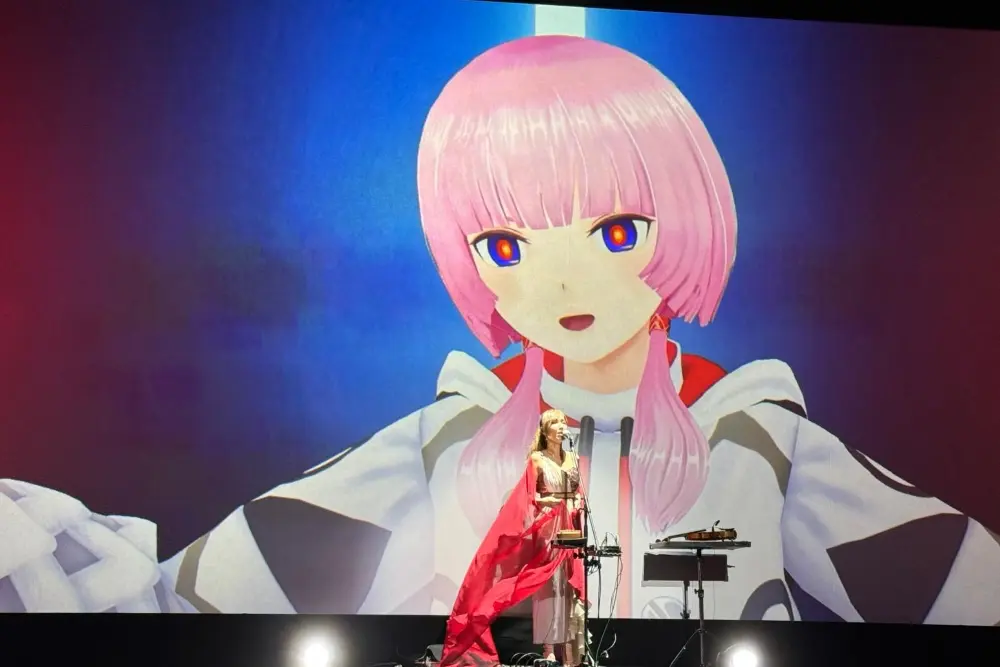Tokyo Film Festival kicks off amidst political and cinematic shifts
As the Tokyo International Film Festival commenced this Monday, it did so under a unique backdrop of political and cinematic currents. Hours after the general election results, which saw the ruling Liberal Democratic Party facing a lower mandate, the festival embraced a juxtaposition of political apathy with a vibrant audience enthusiasm for film.
A resurgence in Japanese cinema
Following a solid recovery in 2023, the Japanese box office is set for moderate growth this year. The forecast predicts that by the end of the year, box office revenues will reach an impressive $1.88 billion, positioning Japan as the third-largest cinema market globally. This potential achievement speaks volumes about the steadfast resilience of the Japanese film industry amidst various disruptions.
Dominance of local films
One standout aspect of Japan’s film industry is the continued dominance of local productions. So far, Japanese movies have secured nine of the top ten box office spots in 2023. Leading the pack is Detective Conan: The Billion Dollar Pentagram, grossing an astounding $103 million. This local success, however, presents challenges for Hollywood, with Inside Out 2 being the only Hollywood film to break into the top ten, earning $34.4 million.
Industry insights and growth
Vivek Couto, executive director at Media Partners Asia, noted the recovery in the number of theatrical releases to pre-COVID levels. Local films hold a significant 70% share of the gross box office, underscoring the robustness of the domestic film sector. Furthermore, the total video industry revenue is predicted to climb from $31.8 billion in 2024 to $34.1 billion by 2029, with the online segment expected to experience rapid growth, outpacing inflation and the sluggish overall economy.
TIFFCOM: A hub of innovation
TIFFCOM, the concurrent rights, projects, and content market, promises to be a dynamic event. Renowned Japanese companies like Fuji Television and Tokyo Broadcasting Systems are expected to unveil ambitious foreign expansion plans. Despite the vast array of intellectual properties, Japanese media have traditionally adopted cautious strategies. This year, however, there is a distinct air of innovation, exemplified by seminars on Artificial Intelligence (AI) and the assertive strategies of emerging Chinese film and TV studios like Linmon Pictures.
A spotlight on Chinese cinema
This year’s festival selection highlights a strong inclination towards recent Chinese films, with three titles entering the main competition for the second consecutive year. This film diplomacy aligns with the gradual thawing of Japanese-Chinese political relations, offering a stark contrast to the isolation of Chinese entertainment by some Western institutions, particularly since the onset of geopolitical tensions like Russia’s war in Ukraine.
Opening ceremony highlights
Festival chairman Ando Hiroyasu apologized for the late start of the opening ceremony but cited an increase in the number of guests, doubling compared to the previous year. Amidst the festivities, newly re-elected Prime Minister Ishiba Shigeru made his presence felt through a video message, highlighting the importance of the Japanese content industry.
Government support for the creative sector
Shigeru emphasized the government’s commitment to support the Japanese content industry, comparing its export scale to that of the steel and semiconductor industries. The government aims to foster the next generation of creators and optimize business transactions. Notably, there is a push for co-productions, an area where Japan has been conservative. The Japan-Italy coproduction treaty, effective for a few months, serves as a testament to this new approach. The festival’s closing film, Marcello Mio, celebrates this cultural blend, marking the centenary of Marcello Mastroianni, with Chiara Mastroianni among the competition jury.
A star-studded affair
The festival’s ambassador, Kikuchi Rinko, alongside a massive purple-haired anime character, added a touch of flair to the event. The opening gala showcased the frenetic Japanese period action film 11 Rebels. The red carpet saw a blend of celebrities, filmmakers, and industry figures, including director Irie Yu, actor Kumi Takiuchi, and superstar Asano Tadanobu.
Diverse global participation
Apart from local luminaries, the festival welcomed international attendees. These included Midi Z, director of Chinese competition film The Unseen Sister, actor Huang Xiaoming, Malaysian director Chong Keat Aun, Afghan director Roya Sadat, and Singaporean director Eric Khoo. Khoo presented Spirit World, shot in Japan with French veteran Catherine Deneuve.
The Tokyo International Film Festival showcases not only the prowess of Japanese cinema but the intricate web of international cooperation and cultural exchange. Stay connected to witness how these developments shape the future of global cinema.
We encourage you to share this article and keep up with the latest updates by following our coverage across social media platforms.

 Italian
Italian







